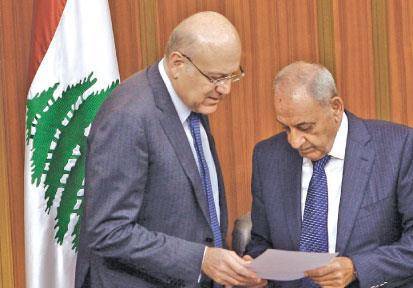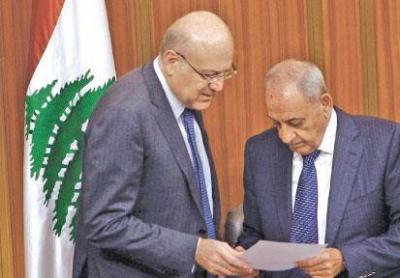As U.S. President Joe Biden's visit to the region begins tomorrow, starting with Israel, and considering the potential outcomes, alongside the Russian-Turkish-Iranian summit announced today in Tehran on the 19th, shortly after the conclusion of Biden's American tour and his participation in the Gulf summit, the Lebanese file remains in limbo both politically and presidentially. If the formation of a government is merely an illusion to fill the void until the beginning of September, the presidential election is the objective and the cornerstone in building a path to rescue Lebanon from its turmoil. The outcome will determine the fate and identity of the occupant of Baabda Palace for the next six years, whether it be a president of challenge or one of understanding and compromise.
Internally, there is fogginess and ambiguity surrounding the presidency, while externally "tests" are being conducted for those who may be qualified. Rapid developments—from the failure of nuclear negotiations in Vienna to attempts to revive them in Doha, the international divide between Washington and Moscow, and escalating conflicts in the regional arena—have rendered the domestic players increasingly irrelevant, even those who consider themselves the strongest. The presidential election will not crystallize without an international-Arab understanding that is currently absent due to the lack of balance and the inequity of new equations.
What direction will the situation take, and how will the phase be managed without an actual government? What if a new president is not elected, plunging the country back into the scorching presidential vacuum amidst a decaying situation and a country collapsing on all fronts?
In this context, informed political sources tell "Al-Markazia" that while waiting for the international and regional picture to manifest and its reflection on Lebanon and its positioning between the two axes, it is crucial that officials do not stand by idly without taking action. It is the duty of Speaker of Parliament Nabih Berri to call for consecutive daily sessions starting from the beginning of September until a president is elected. He has confirmed that he will issue the invitation for a session in early September in response to Maronite Patriarch Cardinal Mar Bechara Boutros al-Rahi's call, who elaborated in his sermon last Sunday on the qualifications required for the next occupant of Baabda. However, daily invitations remain essential to encourage political forces to fulfill their constitutional duty without slackening amid ongoing crises, as the presidential vacuum will undoubtedly be detrimental, possibly fatal.
Moreover, visitors to Ain al-Tineh report that President Nabih Berri has stated he is capable of filling the political gap caused by the lack of a new government formation. They consider that his meeting with Progressive Socialist Party leader Walid Jumblatt in Ain al-Tineh—his first in three months—confirms the continuation of their alliance, despite differences in government formation views. While the Socialist leader is keen on hastening the formation of a new government, the Speaker does not share this urgency given the limited time frame of a month and a half before the two-month deadline for electing a new president. Therefore, attention must be focused on the presidential election as it is the gateway to resolving the crisis.
Political sources view Berri's stance as a reflection of the intensifying confrontation between him and the current regime and its political team. "Dead Berri does not die," and "the Professor" does not rest on injustice or tolerate those who have wronged him, as evidenced by what transpired in the parliamentary elections. Despite the electoral alliance between Hezbollah, Amal Movement, and the Free Patriotic Movement, the results indicated that the supporters of the Amal Movement did not vote for the Movement's candidates across all regions. The sources add that Berri’s relationship with the leader of the Free Patriotic Movement is tense, and efforts made by the party have not yielded any progress. Consequently, Berri stands firmly behind Mikati's positions on the government formation and shows no intention of being lenient regarding the presidential file—even if the situation escalates. Electing MP Gebran Bassil as president is among the most impossible scenarios for him; managing the country with a caretaker prime minister is infinitely better than allowing Bassil to occupy Baabda and repeating the experience of a "bad tenure."




